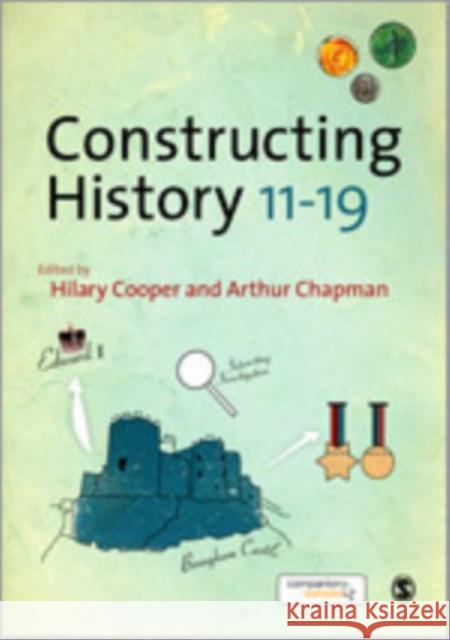Constructing History 11-19 » książka
Constructing History 11-19
ISBN-13: 9781847871879 / Angielski / Twarda / 2009 / 176 str.
Constructing History 11-19
ISBN-13: 9781847871879 / Angielski / Twarda / 2009 / 176 str.
(netto: 598,04 VAT: 5%)
Najniższa cena z 30 dni: 564,19
ok. 22 dni roboczych.
Darmowa dostawa!
'Constructing History 11-19 provides a diverse yet remarkably coherent array of case studies of constructivist history teaching. Its contributors-researchers, teachers, department heads-have a shared understanding of recent theory and research, and provide extended, close-to-the-ground narratives of active learning, supplemented by the voices of both students who participated and academic historians who observed. It is a welcome addition to a vibrant field' - Professor Peter Seixas, Centre for the Study of Historical Consciousness, University of British Columbia 'This book is full of hidden treasures. It is written by a community of practitioners who are all experts in creating history teaching that stretches and engages students. The book is designed to inspire action. It does this as ideas flow through the pages generating in the history teacher thoughts of how to apply and adapt. This book creates 'spin off': actual process that hits our classrooms' - Katy Allen, Head of History, Lancaster Girls' Grammar SchoolThis book describes and exemplifies strategies for teaching history across the 11-19 age range in rigorous and enjoyable ways. It illustrates active learning approaches embedded in pupil-led enquiries, through detailed case studies which involve students in planning and carrying out historical enquiries, creating accounts and presenting them to audiences, in ways that develop increasingly sophisticated historical thinking. The case studies took place in a number of different localities and show how practising teachers worked with pupils during each year from Y6/7 to Y 13 to initiate, plan and implement enquiries and to present their findings in a variety of ways. Each case study is a practical example which teachers can use as a model and modify for their own contexts, showing how independent learning linked to group collaboration and peer assessment can enhance learning. Social constructivist theories of learning applied to historical thinking underpin the book, with particular emphasis on links between personalised and collaborative learning and e-learning.











